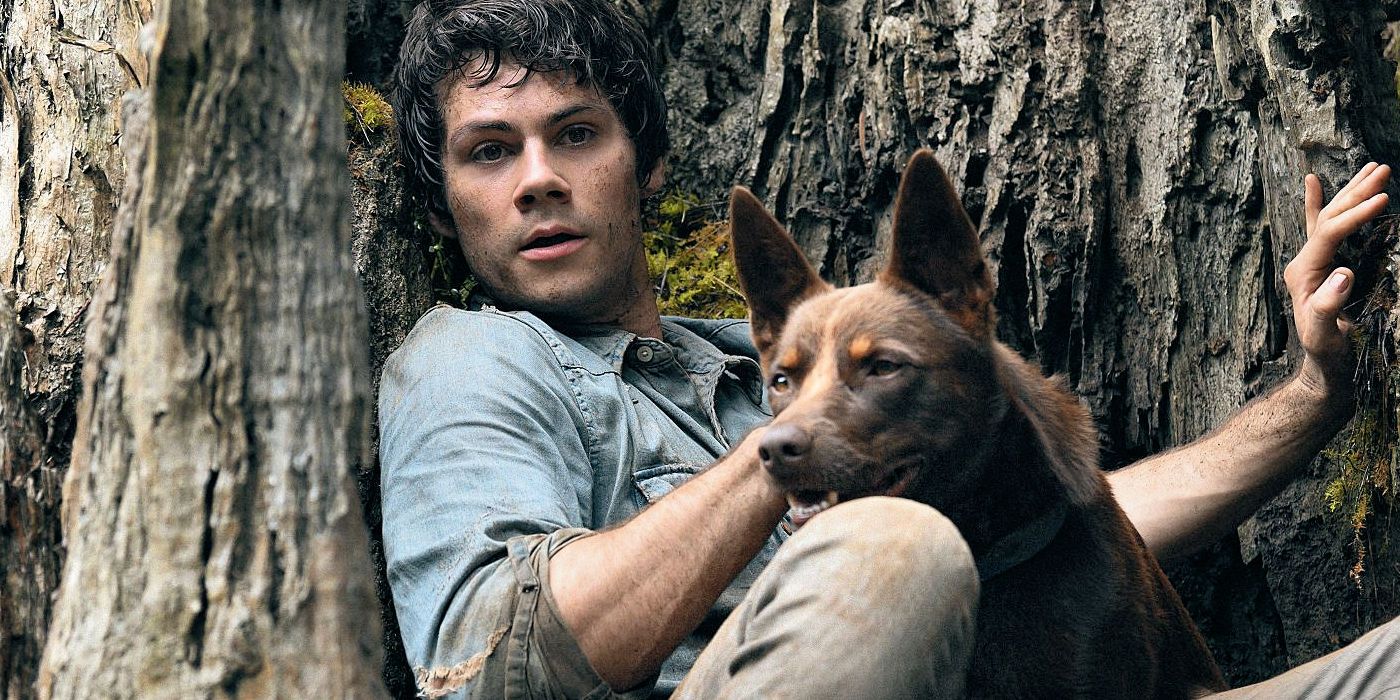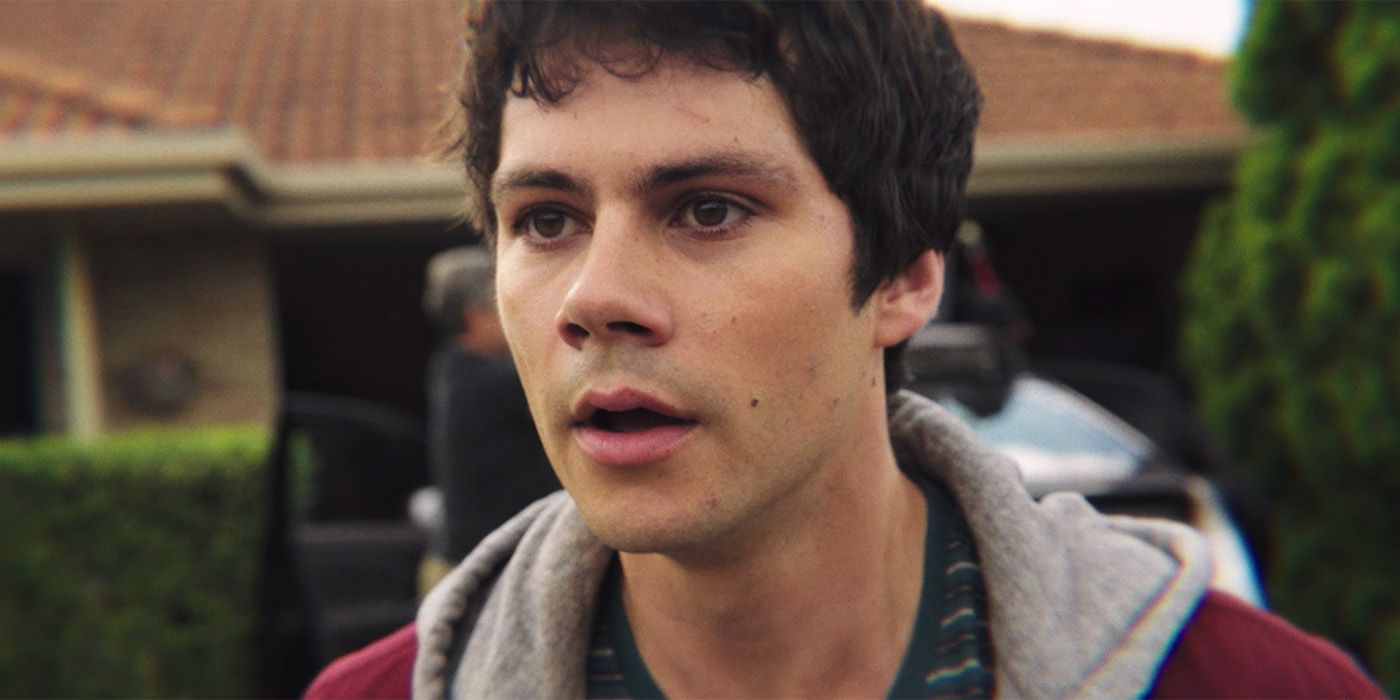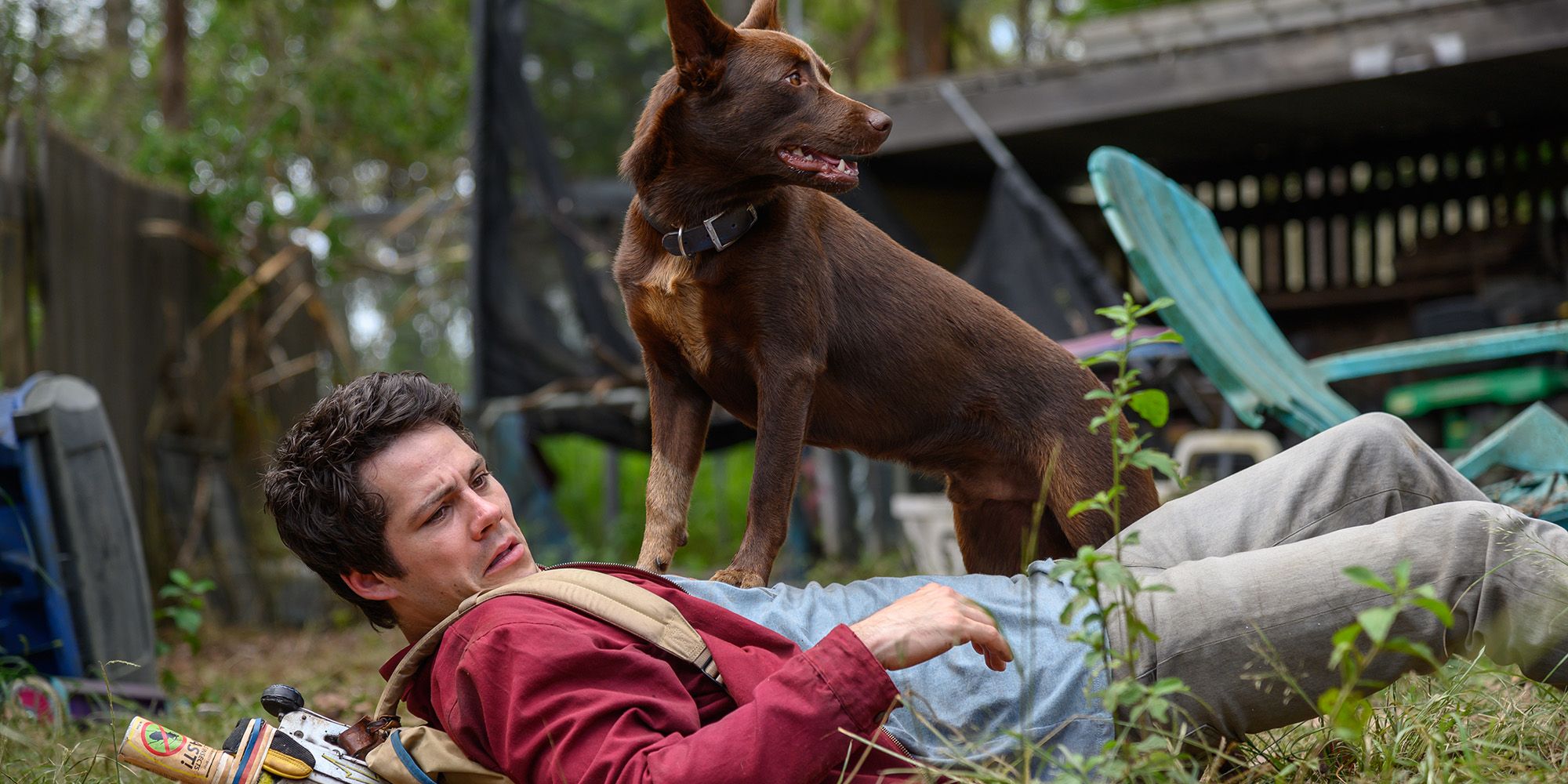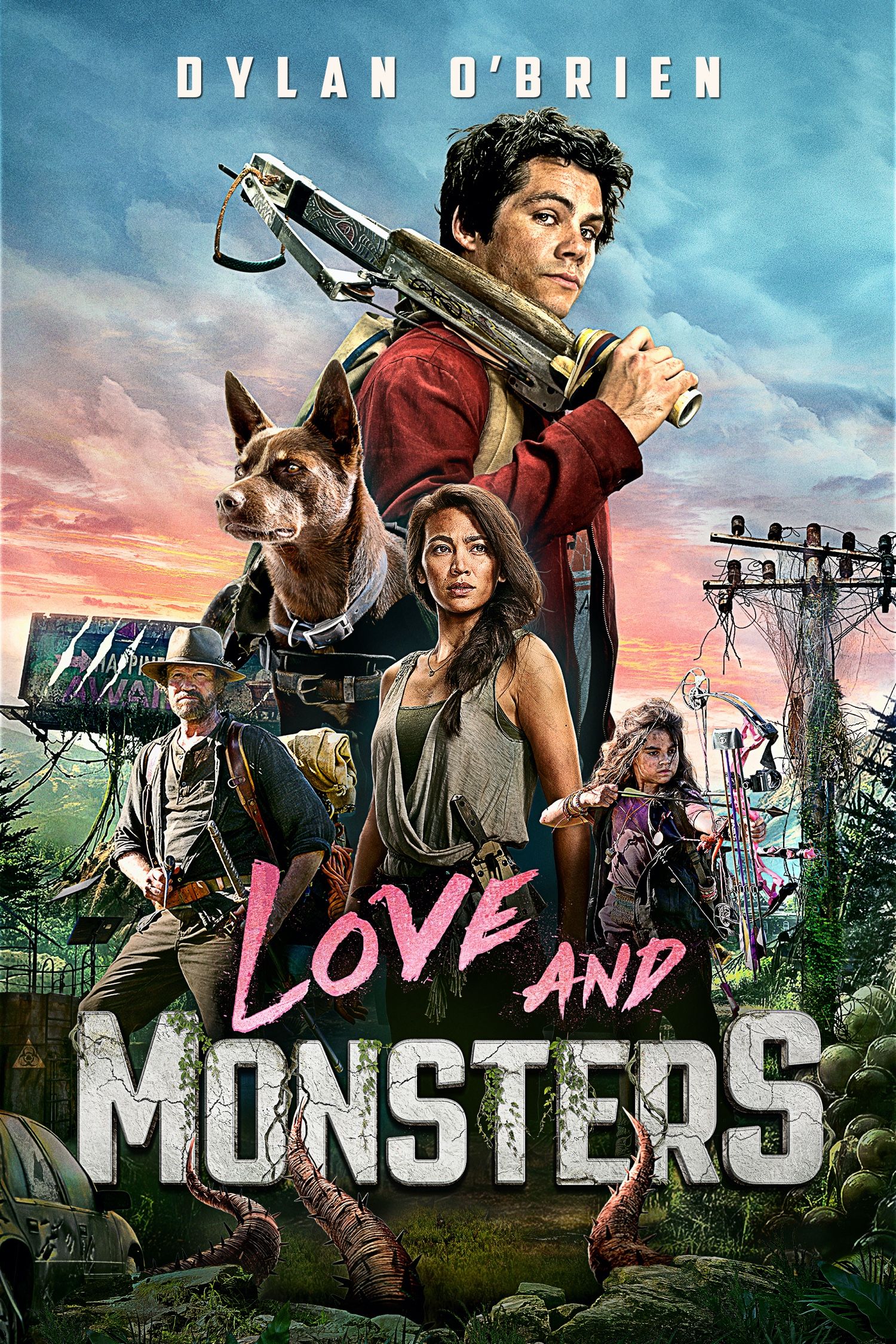Director Michael Matthews gives sci-fi fans a heartwarming blend of genres in Love and Monsters, which is currently available on VOD. The film follows the meek Joel (Dylan O’Brien) in his post-apocalyptic quest to reunite with his high school girlfriend, bar any monsters that might get in his way.
The up-and-coming director spoke to Screen Rant about the collaborative process with producer Shawn Levy (Stranger Things) and how practical effects make the movie magic come to life.
I was talking to Shawn Levy the other day and he said, with big risk comes big reward, and that you are that director that he took a big risk on that paid off immensely with big reward. What was it that drew you to Love and Monsters and got you attached to this project?
Michael Matthews: I'd say it's my love for stuff I grew up on. I was around 10 when Jurassic Park came out - actually, I was a bit a little bit younger. But Back to the Future, Indiana Jones, Jurassic Park - all those in that kind of space for me was what I, in different ways, tied to this project.
It's got a lot of heart, and it's got a good, solid honest through line of a story. It's not trying to do too much or be too complicated. In a way, there's an honesty and a singularity to a guy growing up on an adventure to find a girl across a real landscape with monsters and things. There's something there, where I haven't seen that kind of thing for ages. If we do see it, it's within a big IP project, and there's probably six well-known characters in it, and it's this big mission between a whole lot of people. So, the simplicity of it was actually what I thought was really cool.
Can you talk to me about the collaboration process with Shawn Levy, mainly because he has such a great grasp on sci-fi?
Michael Matthews: I think they'd been working on it for a while before I joined, so they had shaped it a fair bit in terms of what their view of it was. I guess when I came in, I was sort of elevating that from my perspective and going, "This is what I love about it, This is what I would want to do." And that really aligned with how they felt about it as well, and the executives are paramount.
And then from there, I would say, Shawn Levy - but also Dan Cohen was really key in the producing and was always there. They were just really supportive of trying to make sure we get the most out of the film and what it should be. I'd say Shawn was really awesome, in that he wasn't overbearing in terms of coming in and trying to do too much, or oversee too much. But then when he did, it was clearer, broader notes that were really impactful and made sense. From a perspective outside of the person making it is always really helpful.
I think, in an experience level and what an audience wants out of a movie, I felt like they really knew what to get out of it, and what notes to say. "You need to pop that," or "I know you're trying to go there, but you can go harder into that space," or whatever it might be. They were just great, and they've been through so many different things that they have that sort of experience and good insight.
Let's get into the character of Joel. How does the underground colony view Joel?
Michael Matthews: That's a good question. I think they view him as sort of the younger brother, even though he's not the youngest. He's just seen as someone who's not really that capable. You got to be wary of him with any of the more dangerous tasks or physical things or monster-based problems - going hunting, going scavenging for things - Joel's not the guy. Because he's just too scared; he can't do it. He's got a bit of a block in there, psychologically. He desperately wants to be that person and to be confident and help try to save the day, but unfortunately at the start of the film that's not who he is.
But at the same time, I think he brings a lot to the colony in terms of an honesty and an innocence that's really refreshing. He makes the minestrone soup, and I always imagine he cleans things up. He does little art projects in the colony, and he brings a lot of charm and life to the banker. But he's not the survivor, you know?
It's so refreshing seeing a film with this kind of scale, with real sets and locations. Can you talk to me about how much of the monsters and effects were practical?
Michael Matthews: I think a huge point of view from the start for me was to make sure it didn't feel too much like a glossy studio film, in terms of feeling too artificial and that we're shooting a whole bunch on stages with blue screens. It opens up opportunities to recreate more surreal and bigger things, but I just didn't want it to lose the tangibility of an adventure film where you feel like you're moving through real spaces and in a real place. That tangibility makes a real difference for this sort of adventure.
On the creature front, it was kind of the same. Except, obviously, it's too hard to do them practically because they're so big. And on a budget level, it's way more expensive to try and do something like that. But we did, there were quite a few that we use practical elements for and, where we could, we would use practical things.
But I think, even when it came to the VFX aspects of making them, I made a list of rules of what makes me think something feels to CG-ish as a creature. In terms of its movement, or if it's doing stuff that just is too perfect for the moment. I'd often try to say, "How do you put some dirt in its eyes, so it's something scratching there, or it's slightly stumbling while it walks, or there's dirt where it shouldn't be, or it doesn't move too perfectly or too quickly in a moment." Just make it a bit more like real creatures and make it tactile. You want to feel the dirt and the slime, or the grit or the scales or whatever it is - you just want it to feel like you could touch it.
For a lot of the film. Dylan is by himself on his journey with his dog Boy. What impressed you the most about Dylan's performance?
Michael Matthews: Dylan's or Boy's? I'm just kidding. Dylan's performance, from my point of view, made the movie. It was the first time for me where I've made a film where I realized that the value for so much of it is me harnessing how good this guy can be and what he can do. Stimulating that and helping that and making sure what works for what the moment is and works for the sequencing, which Dylan was actually also extremely tuned into. But a big part for me was allowing Dylan to do what he needs to do to make it better, and me realizing there's gold in that, which was really cool.
We just had lots of laughs, and we had to just be careful not to go too far off track, because we could just think something so funny and get into something that we thought would be so funny. But also knowing that maybe this isn't quite right, and it's not going to make it in the movie. But you do need to be playing in that space, so that the scenes or the jokes and things like that don't end up feeling too staged and too cardboard.
I think that was the trick. One of the first things me and Dylan chatted about was how we just make sure that the scenes are alive; he's there in the moment, that's what's happening. Whatever the lines are on the script, obviously that's what the scene is and what we're doing, so how do you make sure it's very present and he's reacting and living that moment? Even if that might change, what it was gonna be might add some different, unique honesty to it that makes the humor better or makes you buy him as a more of a real in a charismatic person.
One of the most touching scenes in the film is the scene with Mav1s. I was talking to Shawn, and he said that scene made it through every draft of the script. Can you talk to me about what inspired Mav1s and that scene?
Michael Matthews: Yeah, absolutely. Before I even joined the film, that was from Brian Duffield's very early draft. And I think, again, it came down to these different characters and things he meets along the way that are pointing him to his journey. Not in a punchy kind of way, but on a human level, all these different character that he meets the journey give to him.
There's like a humanity in Mav1s that, even though she's a robot, brings a lot of heart to the film and doesn't feel like it's trying to achieve anything except that. Which a lot of films don't do these days, and which was hard to do, because it was an 8- or 10-minute scene in the middle of the movie that didn't move that much of the plot forward. But we could never find ways that we would want to make it shorter, and we tried so much because we thought, "We don't want to end up in the edit room and make this two minutes. Let's make that decision now if we're going to cut stuff." And we never really could, because we just thought it is just good how it is.
When I watched this, I got this sense of The Princess Bride in the way that the journey plays out, and there's a lot of other influences I felt. What were some of your influences while you were making Love and Monsters?
Michael Matthews: Interesting, there's definitely a touch of Princess Bride there. It was hard, because there weren't any movies where I thought, "Oh, this is quite similar, and I would say that that's a good reference." For me, there's a Back to the Future element with Joel Dawson, in terms of how he's a relatable guy who's on his feet in these moments, often confused, but he just really cares about something and is passionate. But he's just very relatable and very charismatic.
Jurassic Park, for me, was the original one. It was about not going too heavy with the horror, but having moments that feel scary enough where you're riding that line of knowing that this is a movie for a broader audience. You just want the simplicity of not seeing a creature, then is there one there or isn't there one? And then how it's revealed, and the sequencing of the set piece. Jurassic Park is a huge one, and probably my favorite movie.
And then Indiana Jones, I guess, for some of the action. Just keeping a bit of the quirk and the flavor and the charm in the action. It doesn't get too straight or too serious, but the stakes are still there and you know you're in good hands with a fun movie to watch. I'd say those are the main ones. I think Zombieland has come up a bit, but to be honest, it wasn't really much of an influence for me personally.
Joel starts his journey in search of the person he thinks is his true love. But what does Joel actually discover about himself through the course of his journey?
Michael Matthews: It's as simple as he's just got to grow up. I see Joel at the beginning as, he's this person that's been in a bunker for seven years. He's lost his late teenage years, which are so formative, and hasn't had real relationships; hasn't been part of society and grown in the way that we normally do through that time. He's just stuck with a small amount of people in a bunker, and so he's kind of stuck being a 16 year old, except now he's 24.
He's kind of there, and he's got this romantic ideal of Aimee and how important that is. But what he's got to realize is that he's kind of got to grow up and lose a bit of the romantic idealism. Not the passion and not stuff that he cares about, but the artificial, nonexistent thing that's a little bit more in his head. It's really just about growing up and taking a bit of responsibility, and finding himself in the world, rather than then fixating on something that's a little bit of a dream.
Clyde and Minnow have these rules. One of my favorites is "not both," you can't do both. Another one is "keep your socks dry." What is your favorite rule?
Michael Matthews: I would probably agree, "keep the socks dry." It's just classic Army stuff. If you don't keep the socks dry, you're going to have big problems after he died.




